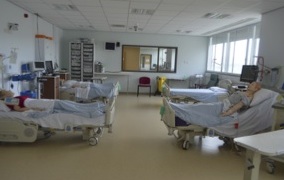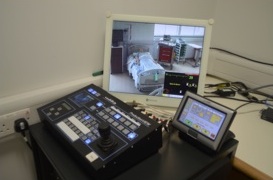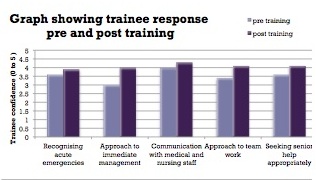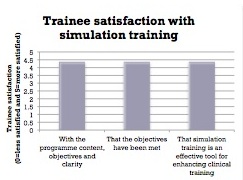


Theme
10BB Simulation 2
INSTITUTION
Sheffield Teaching Hospitals NHS Foundation Trust - Palliative Medicine - Sheffield - United Kingdom

Medical simulation is increasingly utilised for training, as it allows management of complex scenarios in a controlled, risk free, environment. Patients with a life limiting illness receiving palliative care may develop an acute condtion necessitating prompt diagnosis and management. Exposure of Palliative Medicine trainees to emergencies can vary, and promoting simulation training in postgraduate medical education provides an opportunity to address this.
Our aim was to use simulation training to enhance the knowledge, skills and confidence of trainees to manage an acutely deteriorating patient.
The Palliative Medicine curriculum requires trainees to competently manage an acutely deteriorating patient. Our aim was to use simulation training to enhance the knowledge, skills and confidence of trainees to manage hypoglycaemia and gastrointestinal haemorrhage. Both scenarios necessitated recognition of any potentially reversible causes to the patient’s deterioration and individualisation of management. 8 specialist trainees attended ranging from first to final year. The session was lead by consultants with the support of the simulation team. We obtained trainee feedback pre and post teaching session.


We would like to thank the simulation training team, the facilitators and the trainees for their participation and feedback.
Trainee confidence was rated before and after the session (0-5 scale), and showed an increase in each of the 5 domains measured; recognising acute emergencies in Palliative care (3.6 vs 3.9), approach to immediate management (3 vs 4), communication with medical and nursing staff (4 vs 4.3), approach to team work (3.4 vs 4.1) and seeking senior help appropriately (3.6 vs 4.1). Trainees were satisfied with the content and effectiveness of the session. The questionnaies were completed by 8 trainees. All the trainees said they would like to receive simulation training again in the future.


Simulation training enables trainees to develop their skills and confidence in the management of medical emergencies. The learning environment was safe and trainees learned from faclilitated discussion with their colleagues. Written and verbal feedback suggested trainees would be able to integrate this learning into clinical practice.
Simulation training provides an acceptable means of delivering teaching on the management of emergencies in the context of Palliative Medicine.
 Send Email
Send Email